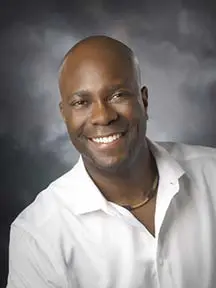RISE PERSPECTIVE
August 1, 2017
Why Don't They Swim?
By Cedric Taylor

I still remember watching those headlines on ABC News in late summer 2010.
The faces of six African-American children streamed across the television. They all drowned in a river in Shreveport, Louisiana, trying to save a friend.
According to reports, none of them knew how to swim.
Loss of life is painful, but that so many children perished in a single preventable accident was tragic to say the least. Also, the fact that the children were African American wasn't lost on me.
Predictably, questions emerged as to why such a tragedy occurred in the first place. How did all these children lack what many consider to be an extremely important skill? Were their parents negligent in not teaching these children how to swim? Was this just bad luck?
Sociologists like myself are skeptical of "common sense" explanations about social phenomena. Instead, we pay attention to empirical data and social and historical factors - factors we ordinarily take for granted. The drowning of the children, sociologically speaking, may not have been about bad luck, or "bad parenting."
Consider these statistics from the Centers for Disease Control and Prevention: African-American children drown at a rate three times that of white children. About 70% of African-American children indicate no or very low swimming ability, whereas only about 6% of white children and teenagers cannot swim. A 2010 report by USA Swimming Foundation and the University of Memphis found that many African-American families don't ensure that their children learn how to swim, because they are suspicious and even frightened of swimming as an activity.
These finding are rooted in America's racial past. Jim Crow laws throughout the South and "de facto" racial segregation in the North meant that African Americans had less access to public spaces. Further, intimidation and sheer violence ensured that African Americans avoided public pools and beaches. Jeff Wiltse, author of Contested Waters: A Social History of Swimming Pools in America, argues that lack of access to swimming pools and public beaches meant that many black Americans were denied the opportunity to learn how to swim, and intergenerational fear of the water stops their descendants from learning now. The USA Swimming Foundation's findings support this argument - "if a parent does not know how to swim, there is only a 13 percent chance that a child in that household will learn how to swim."
If misfortune played a role that late summer in Shreveport, that misfortune occurred within a context. We can learn from this tragedy and we can learn from history.
Rather than being a source of exclusion, sports today can be a tool with which to effect positive social change. Sporting institutions and athletes must partner with communities and schools to ensure that all children can access swimming programs and instructors. Such is the example established by Cullen Jones and USA swimming in launching the Make a Splash Foundation geared toward teaching minorities and inner city youth to swim. Similar programs are run by the American Red Cross and YMCA. With such partnerships, organized swimming could be made a compulsory part of the curriculum in more public schools.
Sports can be a vehicle to impact the lives of youth. That impact is largely dependent, like most things, on the commitment and investment put into it. I realize that in times of tight budgets and fiscal uncertainty these are ambitious recommendations. But then again, how much is a life worth?
Cedric Taylor is a filmmaker, race scholar and an assistant professor of sociology at Central Michigan University.
Our
Partners
Stay
In Touch
Follow us on social media.